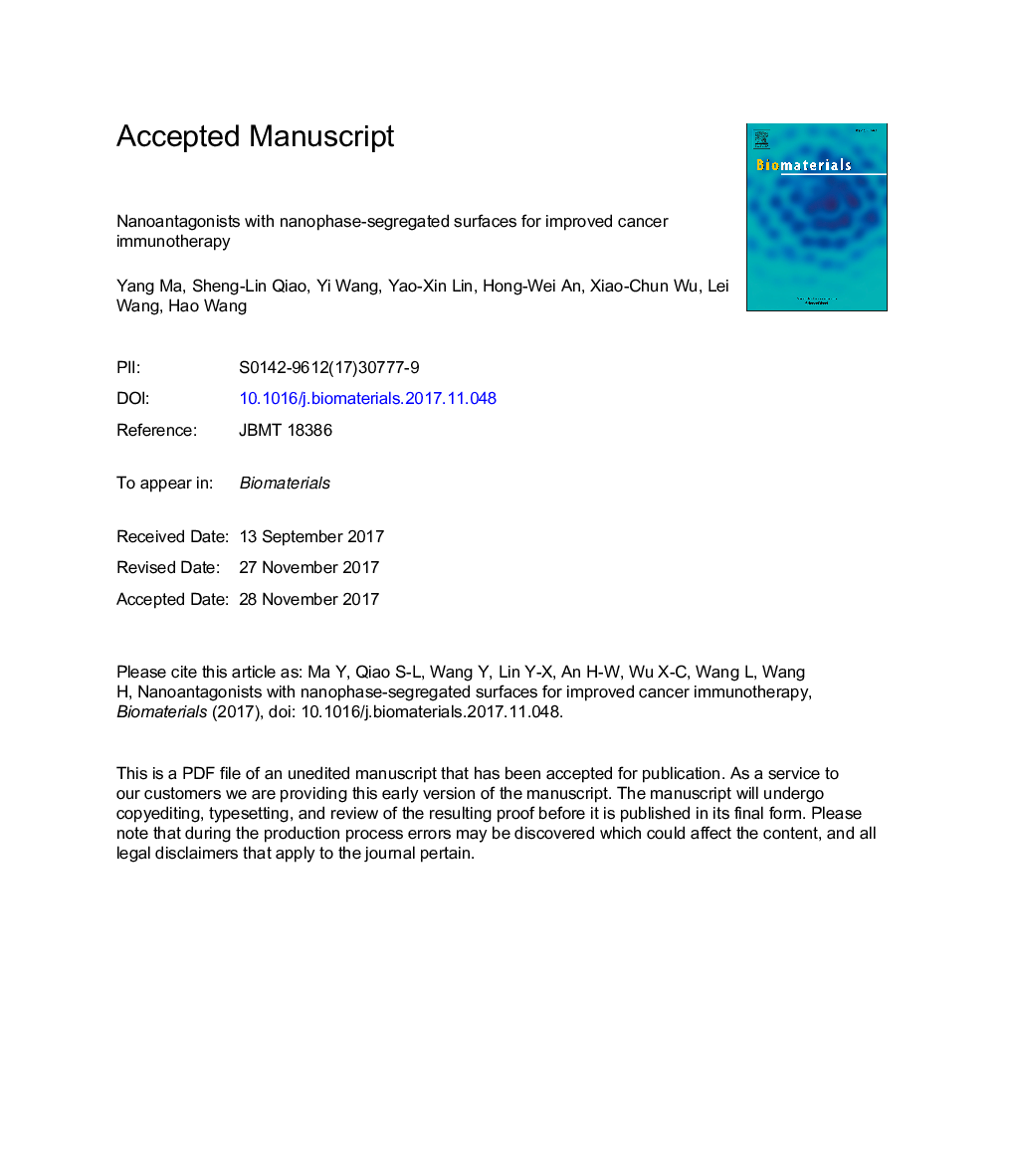| Article ID | Journal | Published Year | Pages | File Type |
|---|---|---|---|---|
| 6484730 | Biomaterials | 2018 | 35 Pages |
Abstract
The blockade of PD-1/PD-L1 interaction by peptide antagonists can unleash and enhance pre-existing anti-cancer immune responses of T cells to eradicate cancer cells. However, low proteolytic stability is the “Achilles' Heel” of peptides. Here, we first report a nanoantagonist with a physiological temperature sensitive nanophase-segregated surface that exhibits significantly enhanced blood circulation, peptide stability and PD-L1 immune checkpoint blockade efficacy. Thermosensitive polymers with different phase transition temperatures (Tt) are used to form the nanophase-segregated surface on an Au nanorod core. Importantly, the nanophase-segregated surface aids the nanoantagonist to resist protein adsorption and enhance the systemic stability of the linked peptides. Finally, the as-designed nanoantagonist effectively blocks PD-1/PD-L1 interaction in vitro and in vivo, enhances the pre-existing CD8+ T cell tumor destruction capability and inhibits tumor growth. This study offers a new strategy for designing nano-formulations for cancer immunotherapy.
Related Topics
Physical Sciences and Engineering
Chemical Engineering
Bioengineering
Authors
Yang Ma, Sheng-Lin Qiao, Yi Wang, Yao-Xin Lin, Hong-Wei An, Xiao-Chun Wu, Lei Wang, Hao Wang,
